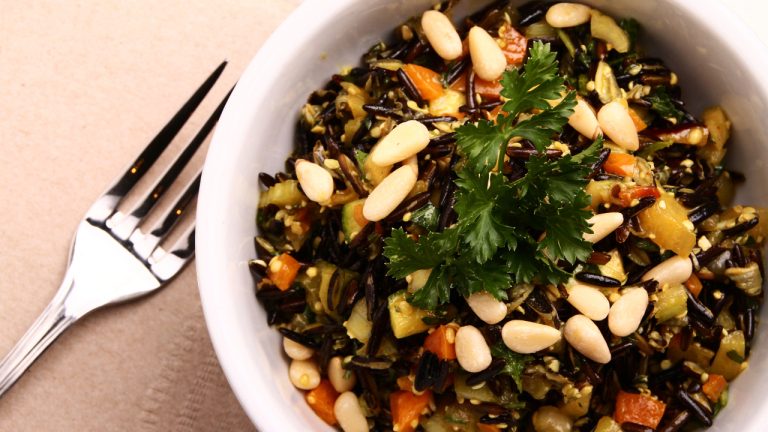Is Pasta Good For Bulking? Should You Stock Up?
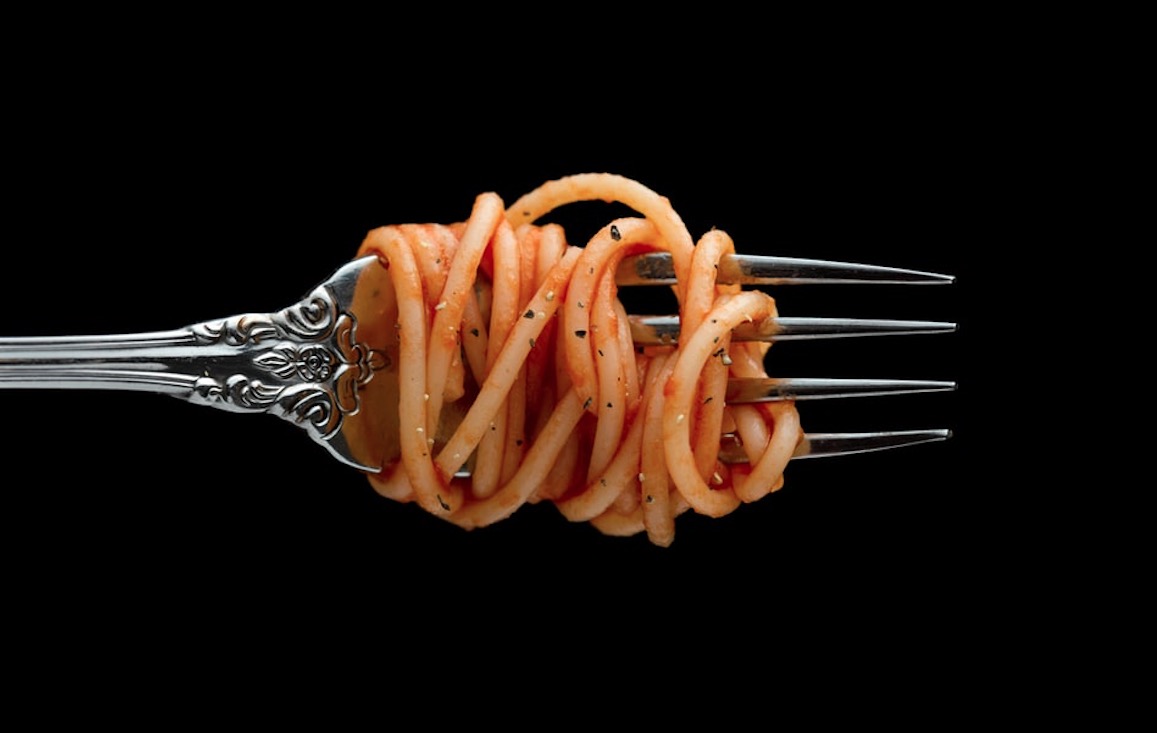
ListedFit is reader-supported. When you buy through links on our site, we may earn a small commission.
Have you ever wondered, is pasta good for bulking?
When it comes to bulking up and gaining muscle mass, finding the right foods to fuel the body is crucial.
Carbohydrates are the primary energy source for high-intensity workouts and muscle growth, so it’s essential to include carb-rich foods in a bulking diet.
This brings many to the question: Is pasta good for bulking?
Summary
Pasta, as a high-carbohydrate food, does seem to be a suitable choice for those looking to bulk up.
It provides a significant amount of carbohydrates, which helps fuel workouts and support muscle growth, particularly when eaten pre-workout.
Moreover, certain types of pasta contain a decent amount of protein, making them even more suitable for a bulking diet.
However, it is essential to consider the nutritional quality of the pasta being consumed and opting for healthier variants when possible.
Key Takeaways
- Pasta can be beneficial for bulking due to its high carbohydrate content
- Consuming pasta before workouts can provide the energy needed for intense exercise
- Choosing healthier pasta options like whole grain can further support a successful bulking diet
In This Article…
Why Is Pasta Good for Bulking? 🍝
Pasta is a very famous part of many people’s diets, but it is often misunderstood. While most carb sources are made up almost completely of carbs, not all carbs are created equal. Pasta seems to be in the dreaded middle ground where it gets blamed for being high in calories and carbs, yet is still highly processed.
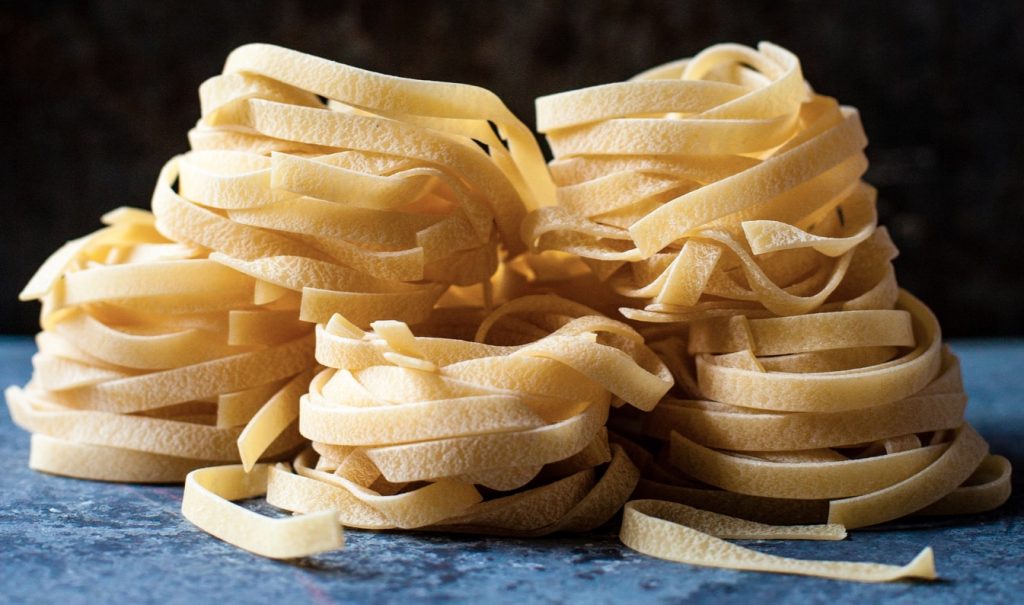
Pasta is made up of natural ingredients (flour, eggs, salt) and doesn’t contain any added sugars or chemical additives. The reason pasta seems to be so high in calories and carbs compared to other carbs like potatoes, rice, etc. is because it’s actually not very dense food. A serving of potatoes has more than double the calories (for the exact same volume) as a serving of pasta simply because there are more starches/carbs in them than natural oils that give pasta its taste and texture.
How Much Protein and Fats Does Pasta Contain?
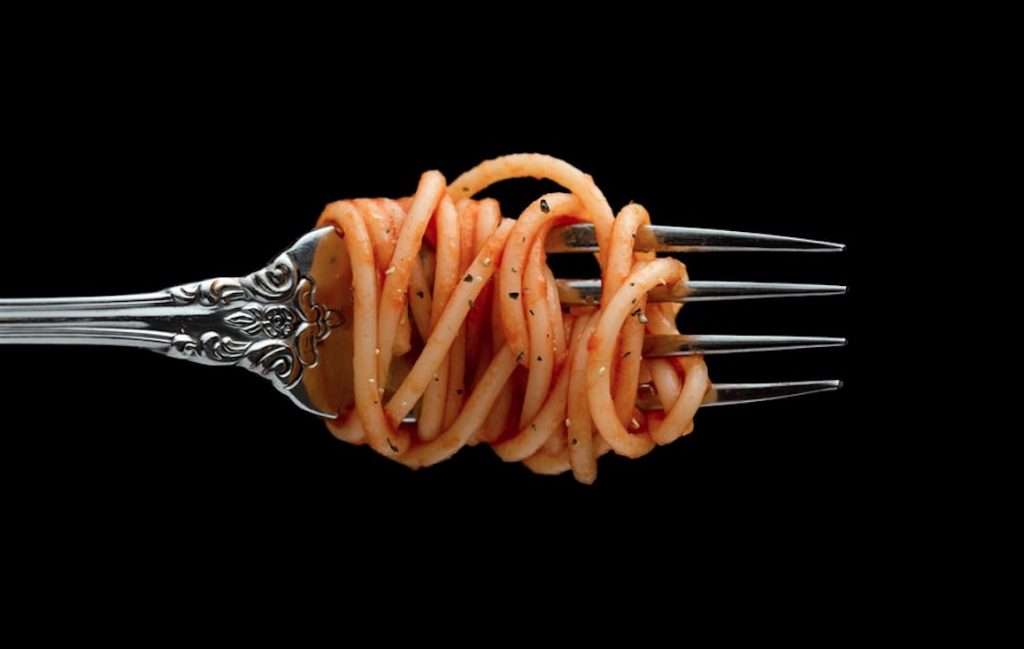
One cup of cooked pasta has about 210 calories and it also contains less than 1 gram of fat, around 3 grams of dietary fiber, 7 grams of protein, and 44 grams of carbs. 8% of the calories in pasta come from saturated fats
Overall these numbers are pretty good for a carb source because they indicate that most (60%)of the energy in your food will be coming from carbohydrates which isn’t necessarily bad as long as you’re eating enough vegetables too.
So far so good with pasta! Now all we have left to worry about is how much carbohydrate content pasta has per serving.
How Many Carbs Per Serving in Pasta?
There are two things that people seem to think about carbs that need to be cleared up before we can answer the question of whether or not pasta is good for bulking.
The first thing is that calories and grams of carbohydrates don’t always add up in foods like pasta, rice, potatoes, etc.
This phenomenon has to do with how vegetables are measured because they use something called “as ate basis” which means they measure all the different nutrients/calories in a cooked serving instead of just measuring one nutrient (carbs).
The second thing is that not all carbs are digested at the same rate so even though pasta might have 44 grams per serving it doesn’t mean you’ll absorb all 44g into your body.
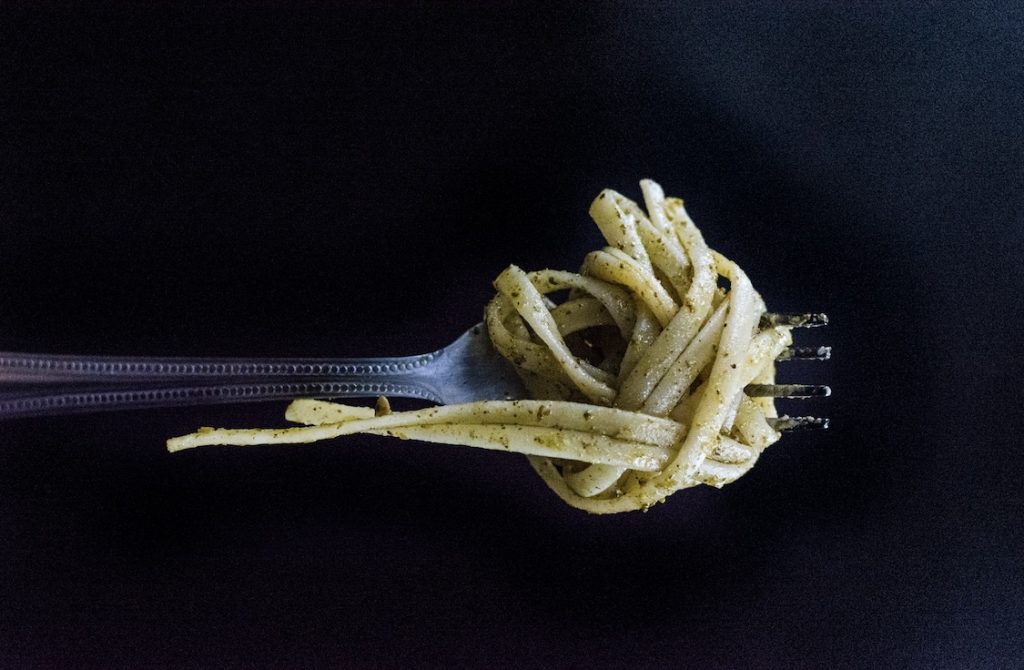
The rate at which different types of carbohydrate are absorbed into the body is slowed by eating vegetables and whole grains with carbohydrate sources because these two things tend to also contain significant levels of fiber, especially dietary fiber.
When we’re talking about pasta we’re looking at around 80%+ absorption because it is a refined food that lacks many of the natural oils and fibres found in vegetables like broccoli or lentils for example.
This means the average person will only absorb 44g out of the 210 calories coming from carbs in their plate of pasta.
Pros and Cons of Eating Pasta for Bulking
Pros of using pasta for bulking.
– Pasta is a high quality carbohydrate that supplies your body with an instant and sustained form of energy.
– It can help you feel fuller for longer, meaning it’s great for appetite suppression, especially wholewheat pasta which is a complex carb.
– Pasta is cheap and accessible, which makes it easy to fit into even on a tight budget (if bulking).
– Pasta is easy to prepare.
Cons of using pasta for bulking
– The high glycemic index of pasta can lead to sharp increases in blood sugar, especially if you don’t go for wholewheat options.
– Pasta isn’t particularly nutrient-dense, so won’t do much to help you reach your daily intake requirements.
– The fact that pasta is so cheap may tempt some people into overindulging, leading to fat gain.
– Pasta isn’t particularly high-quality protein, so it won’t do much to help your muscle growth.
Alternatives to Pasta for Bulking?
While there are many ways one can bulk, pasta shouldn’t be a top priority in your meal plan. Food choices should be based on the following three factors: cost, convenience and calorie/macro content. If you’re looking to bulk up and stay lean, then opt for foods that score high under all three of these.
– Brown rice or even black rice is an awesome alternative to pasta, being more nutrient-dense and with lower GI.
– Sweet potato is a better choice than pasta, being lower GI and more nutrient-dense.
– Noodles made from BEANS instead of wheat are also a great alternative to regular pasta. Beans that can be used for this purpose include mung beans, black beans, lentils and soybeans .
Is Pasta Good For Bulking? – Conclusion
The short answer: is yes. The trick is knowing how to fit pasta into your diet properly.
When you’re trying to put on muscle mass, carbohydrates are the main source of energy that will provide fuel for your workouts.
Carbs also help to increase glycogen in muscles which stores water and gives them that fuller look.
But if you eat too much carbs – no matter if they come from pasta or not – this extra glycogen will convert into body fat so it’s important to find a nice medium between enough carbs and too many carbs when bulking up without of course forgetting about other macros of protein and fats.
Frequently Asked Questions
Is pasta beneficial for muscle gain?
Yes, pasta can be beneficial for muscle gain. Pasta is a carbohydrate-rich food that provides the body with energy to fuel workouts and promote muscle growth.
Consuming pasta along with protein and other essential nutrients can contribute to a balanced and effective bulking diet.
What type of pasta is best for bulking?
The type of pasta best suited for bulking is a personal preference. Whole wheat pasta contains more fiber and generally has a slightly higher protein content, but the difference is not significant.
Choose the one you enjoy the most and focus on portion size and overall nutrition in your bulking diet.
How often should I eat pasta for bulking?
There is no fixed rule on how often to eat pasta for bulking. The frequency of consuming pasta depends on your personal preferences, dietary requirements, and fitness goals.
It’s essential to maintain a balanced diet that includes a variety of carbohydrate sources, proteins, and healthy fats to support muscle growth and recovery.
Does pasta help with post-workout recovery?
Yes, pasta can help with post-workout recovery.
Consuming a meal with carbohydrates, such as pasta, after a workout helps replenish glycogen stores in the muscles, which supports recovery and promotes muscle growth.
Pair pasta with a source of protein for a balanced post-workout meal.
Can pasta hinder weight loss during bulking?
While pasta itself doesn’t necessarily hinder weight loss during bulking, consuming excessive portions or prioritising unhealthy pasta dishes (like creamy sauces or excessive cheese) can contribute to excess calorie intake and fat gain.
Focus on portion control, healthy ingredients, and balancing your macronutrient intake alongside pasta to ensure you’re gaining muscle without unnecessary fat.
Are there alternative carb sources for bulking besides pasta?
Indeed, there are alternative carbohydrate sources for bulking besides pasta. Some popular options include rice, potatoes, quinoa, oats, and wholegrain bread.
These foods also provide energy and nutrients to support muscle growth and recovery. Diversifying your carbohydrate intake can help ensure you consume a well-rounded and balanced diet while bulking.
Author
- Danny Loeb is a qualified Personal Trainer, Fitness Model and Writer. He enjoys blogging about health and fitness, messing around with Photoshop, and sharing his experiences with everyone.
Latest entries
 NutritionFebruary 6, 2024What Are Fillers in Supplements? – Unveiling Inactive Ingredients
NutritionFebruary 6, 2024What Are Fillers in Supplements? – Unveiling Inactive Ingredients FitnessAugust 23, 2023Best Post-Workout Foods: Great Ideas for Recovery and Results
FitnessAugust 23, 2023Best Post-Workout Foods: Great Ideas for Recovery and Results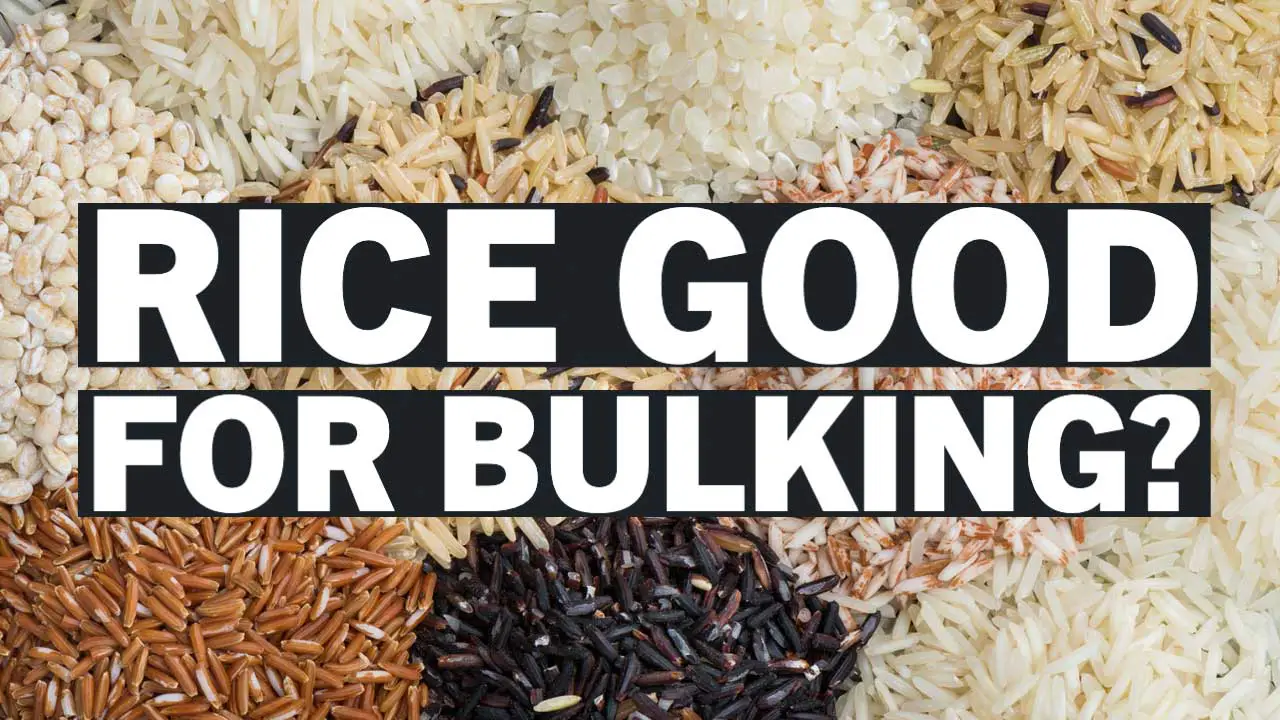 BulkingJuly 26, 2023Is Rice Good for Bulking? Unveiling the Truth
BulkingJuly 26, 2023Is Rice Good for Bulking? Unveiling the Truth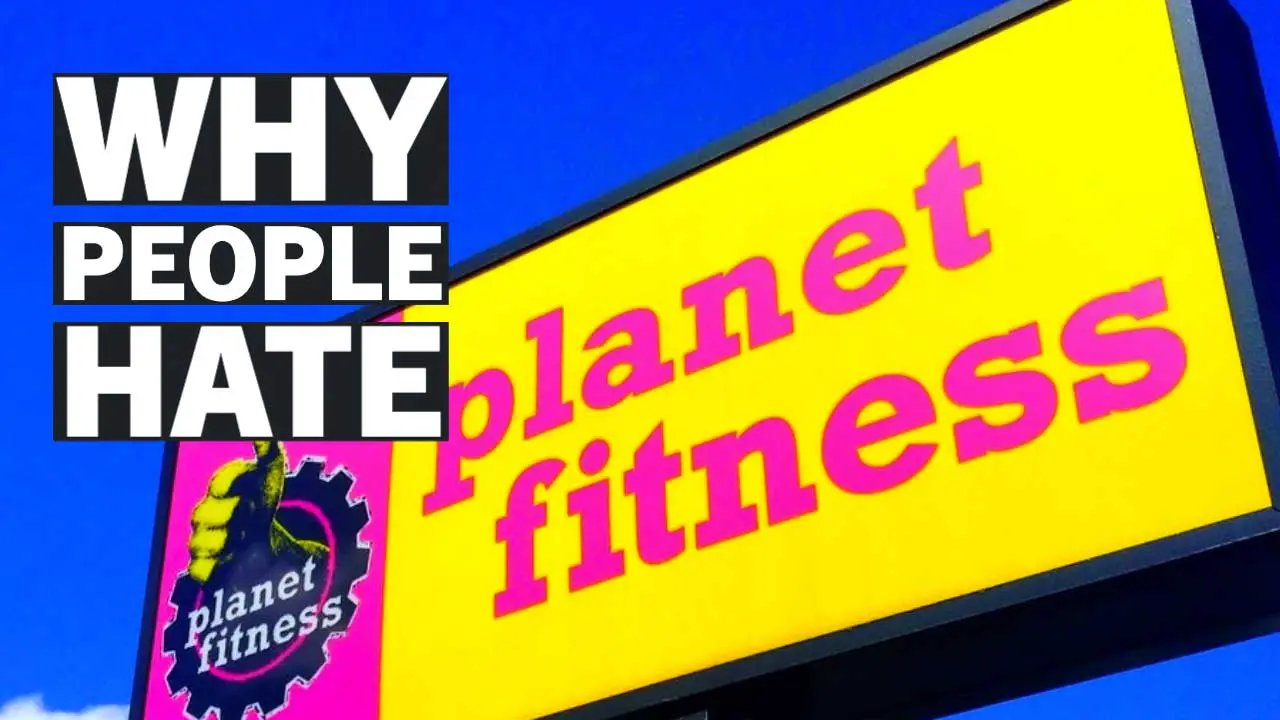 CultureJuly 15, 2023Why Do People Hate Planet Fitness? Read This Before You Join!
CultureJuly 15, 2023Why Do People Hate Planet Fitness? Read This Before You Join!
Affiliates:
This post may contain affiliate links that at no additional cost to you, the site may earn a small commission. We only recommend products we would use ourselves and all opinions expressed on this site are our own.
General Advice:
The information provided in this article is for general informational purposes only. It is not intended as a substitute for professional advice. Always consult with a qualified healthcare professional before starting any new diet, exercise program, or making changes to your health routine.
Accuracy Advice:
While we strive to provide up-to-date and accurate information, the content in this article may not reflect the most current research or medical guidelines. We encourage readers to do further research and consult with professionals for more personalized advice.
Our Recommendations:
The products and services mentioned in any of our articles are recommended based on our independent research and personal experience. We are not sponsored by any company. We aim to suggest products and services we believe are of high quality and could be beneficial to our readers.






